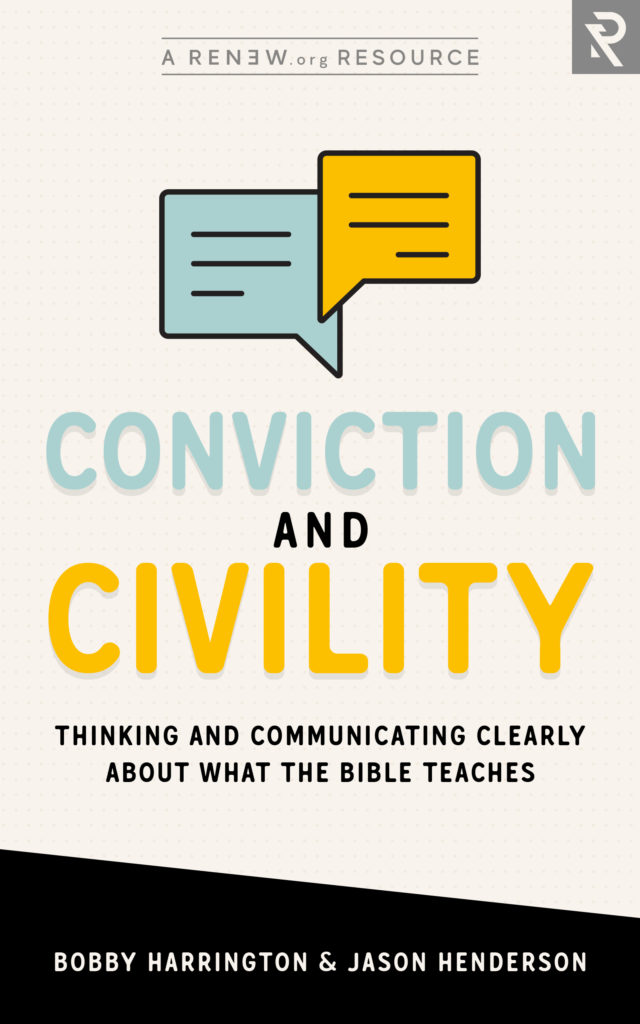
What’s the Alternative to Judgmentalism?
There is a consequence to judging: “Judge not, lest you be judged” (Matt. 7:1).
Apparently, I need to watch my back. But watch out for whom? Who is the one judging me?
Is Jesus warning that I would be judged by other people? The idea is that, when I come at them, they’ll come right back at me.
Or is he warning that I would be judged by God? In other words, when I judge others, something gets put on the books for the last day.
This question hits on a tension that runs throughout the Sermon on the Mount: Is Jesus talking about this life or the one to come?
To put the question another way, is Jesus standing in the wisdom tradition here? Like the book of Proverbs, is this a “ground-up” statement, based on life experience, which says, “Hey, look. This is just the way the world works”?
Or is Jesus standing in the prophetic tradition? Is this a “top-down,” “thus saith the Lord” kind of thing? Like the prophets, is this a warning reminding us of ultimate realities?
As so often in the Sermon on the Mount, I think Jesus wants the ambiguity here.
This is typical of Jesus’ teaching. He often doesn’t wrap things up into neat little packages. He leaves them open–pointing in many possible directions. I think he wants us to chew on it, to spend time thinking about it from different angles. (That may be one of the reasons Scripture seems to have the ability to grow as we grow.)
So, in Matthew 7:1-6, we see pointers in both directions.
First of all, we argued before that Matt. 7:6 (“Do not throw your pearls before pigs”) is a re-phrasing of 7:1 (“Judge not, that you be not judged”). If that’s the case, then we’re clearly looking at other people judging us back. They would be the “dogs” and “pigs” turning and tearing us to pieces. This is a statement in the wisdom tradition. In fact, Jesus is echoing Proverbs itself:
“Whoever corrects a mocker invites insults; whoever rebukes the wicked incurs abuse” (Prov. 9:8).
This is the way the world works. You judge others, they get defensive and judge you right back. Maybe there’s some deep theological reason for this, or maybe it’s just mirror neurons–neurons that mirror the behavior of others, causing us to reflect the body language, facial expressions, and even emotions of the people we are interacting with. In that case, it would take a conscious act of will to not judge someone right back.
On any account, getting judgey about other peoples’ mistakes doesn’t help them.
You just establish yourself as an uninviting presence. The problem is that those mistakes are mistakes precisely because they raise the probability of negative consequences. (Affecting the probability of positive or negative outcomes is precisely what wisdom literature is all about.)
Sooner or later, the consequences will catch up. The bill will come due. When that happens, the people who made those mistakes will need help. And they won’t see you as safe. They’ll see you as someone who already pushed them away.
That would be something of an indictment against you. Which brings us to the prophetic angle of, “Judge not, lest you be judged.”
The New Testament writers often use what’s called a “divine passive.” They say that something is being done, but don’t explicitly say who is doing it. Often, the implication is that God is the one doing it. The “lest-you-be-judged” of Matt. 7:1 smells a lot like that.
If Jesus is hinting at possible judgement from God here, he is crystal clear about it in the parallel teaching on forgiveness. “For if you forgive other people when they sin against you, your heavenly Father will also forgive you. But if you do not forgive others their sins, your Father will not forgive your sins” (Matt. 6:14-15). Nothing passive there! God is clearly the one judging.
This statement about forgiveness is one of the starkest warnings in the New Testament.
Obviously, something very important is at work here. And the parallel with judging is not minor. Luke actually sandwiches the statement on forgiveness right in the middle of the discussion on judging (Luke 6:37-38).
To understand what’s going on, we need to remember that, in the Sermon on the Mount, Jesus is always driving at attitudes.
So, in any discussion, the first thing to do is identify what attitude is at play. In Matt. 7:1-6, that’s obvious: judgmentalism. But it doesn’t do to simply say, “Stop doing that!” (Quick, don’t think about pink elephants!) We need to figure out what the opposite attitude is. Don’t just ask, “What negative attitude should I avoid?” but, “What positive attitude should I actively foster?”
So what is the opposite of judgmentalism? What is the opposite of drawing a line between “us” and “them” and taking a stance of both moral and intellectual superiority? Of feeling that we, who are not wrong, can make pronouncements about the wrongness of them?
The opposite of judgmentalism is empathy.
Empathy is understanding where the other person is coming from. It’s not a matter of excusing or even minimizing their behavior. It’s a matter of recognizing our common humanity, of understanding that there is a possible set of circumstances in which I could have ended up doing the same thing.
If my dad had treated me like that, I’d have some pretty deep issues, too. If my family grew up desperately poor like that, I’d probably interact with the world a lot differently. If that temptation crossed my path, I’m not sure how well I’d stand up.
As one of my professors used to say–it would only take a quarter turn of God’s sovereign screwdriver, and I could be standing in the same place.
And that possible scenario may not be hypothetical. It may be last week.
And our circumstances will never be more universal than they will be on that last day. Judgmentalism fades when we remember that, one day, we will all stand before the judgment throne. There will be no “better than” or “worse than” there. All our pretenses will be stripped away, and we will all be equal–broken humans in need of a savior.
None of us–not me, not the one I judged–will have any hope other than in the forgiveness that comes from the blood of Jesus Christ. On that day, there will be no “us” vs. “them.” There will only be, “There but by the grace of God, go I.”









